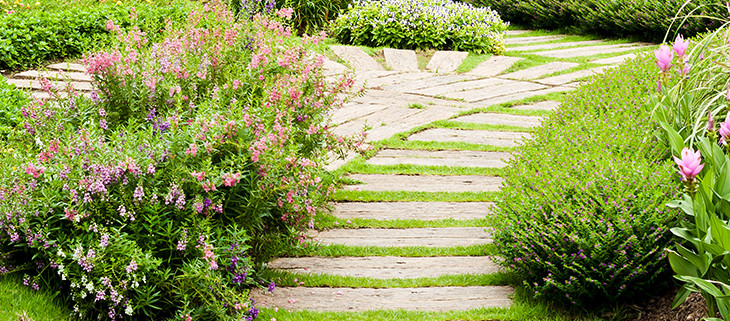Top Reasons Limestone Is Great For Your Garden
How Limestone Is Good For Your Garden
Limestone is a beautiful accent for your home that comes in a variety of options, and it is also a great neutralizer of acid when it comes to lakes and soil. Agricultural limestone and dolomite limestone are the two types of limestone that gardeners and farmers use to enhance soil conditions. Agricultural limestone (Ag lime) carries calcium, while dolomite limestone incorporates calcium and magnesium. Both forms of limestone are beneficial, but a few farmers choose to use dolomite to fight magnesium deficiencies in the flora. There are many advantages to using limestone in your garden, courtyard or lawn, as well as on large plots of land and for maintaining small ponds or natural pools on your property.
Limestone Corrects Soil pH
In most cases, the soil of your lawn, field or garden will become acidic over time because of several different elements. Along with decomposition of natural corrosion and erosion, the soil needs a little love from a neutralizer like limestone. Limestone raises the pH level to a neutral variety beneficial to flowers, usually between 5.5 and 6.5. If the pH is acidic and below 5.5, or if the pH is alkaline and above 6.5, this could create a nutrient deficiency for your plants, grass and naturally occurring flora in the environment. One of the best and most natural ways to enhance the nutritional levels in your lawn ph is to mix limestone into your fertilizer.
Limestone Prevents Toxicities within the Soil
When the soil in your garden or lawn reaches an acidic pH stage, certain nutrients in the soil like aluminum, manganese, calcium, magnesium, phosphorus, and iron increase to poisonous levels. This can ruin your grass, plants, and the natural habitat for wildlife that lives there. Thankfully, using limestone in your garden or lawn will help nourish your plants so they live and grow even longer. Limestone will prevent the buildup of harmful lawn toxins and it can also safely improve the calcium levels in your soil.
Limestone raises the Effectiveness of Some Herbicides
When you add limestone to your fertilizer it improves the structure of the soil, and raises or lowers the acid to correct the soil’s pH. Thanks to limestone’s neutralizing properties, nutrients are more readily absorbed in the soil and plants, and your flora can maintain more water. Additionally, herbicides work much more successfully in a neutral pH-based environment thanks to the fabulous properties of limestone.
Limestone & Your Home Lawn
Agricultural and dolomite limestone comes in numerous varieties and sizes, which include huge blocks, pellets, and pulverized limestone to mix with fertilizer. According to the National Lime Association, the physical specifications of the different forms vary. The pelletized limestone comes in one-inch pieces, for example. Pulverized limestone is much smaller and passes through a No. 20 sieve. Whichever size limestone you choose for your garden, courtyard or lawn, use the proper quantity blended with fertilizer to see the full benefits of this powerful soil neutralizer.
















